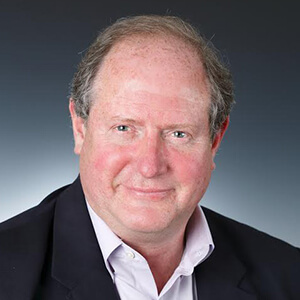Value-based healthcare is outcome-driven healthcare. This means that when you start looking at value, you are defining it in the context of outcomes. It is suggested that the physician or provider should be paid for the value provided, or, in other words, pay for the results, the outcome. Such a change would allow all stakeholders to get completely aligned with what is best for the patient, and that would reduce complexity. If we move to the end-result, with the goal being an improvement in the patient’s condition, then the complexity begins to disappear because the desired outcome can be clearly stated and is foreseeable.
For patients, this means safe, appropriate, and effective care with enduring results, at a reasonable cost. For providers, it means employing evidence-based medicine and proven treatments that take into account the patient’s wishes and preferences.
For a hospital system or large physician group to apply precision medicine, i.e. value medicine, a fully supportive and integrated infrastructure is required. Why is this important? In a “fee-for-service world”, you were paid just to order something. In a “value world”, you have to track it. Did you do it? Did you follow up? Did you implement/achieve change? Therefore, you need not just any technology, but technology built for and with the appropriate people in mind.
Precision medicine strengthens the value-based reimbursement model. It will provide clinicians with new tools, knowledge, and therapies to select from that will work best for specific patients.
At PMWC 2017 Silicon Valley
Over the years, we have seen many efforts that directly or indirectly address value-based healthcare and the cost of healthcare. This is echoed in the Precision Medicine World Conference PMWC 2017 Silicon Valley program with several specific sessions addressing the many facets of this important topic. Among the session highlights are:
- The Economics of Bringing Precision Medicine to the Clinic: Precision Medicine’s value is undeniable. But what about its financial impact? And how should we assess its value beyond the field of oncology? This session will cover the unsustainable economics currently at play, reimbursement challenges and policies, and cost-based pricing versus value-based pricing, from patient, pharma, payor, and molecular diagnostics perspectives.
- Progress in Improving the Evidence Base and Insurer Coverage: Adoption and insurer coverage of precision medicine will require evidence that treatments improve patient outcomes. In this session, we will discuss progress toward achieving research that produces more personalized evidence for more personalized care, consistent and predictable insurer coverage of precision medicine, and next steps towards improving clinical evidence.
- Diagnostics Policy and the Impact on Innovation: Advanced diagnostics play a critical role in precision medicine, insuring that patients receive the most appropriate treatments. However, regulatory uncertainty, as well as difficulties with reimbursement, create a challenging funding environment for innovation. This session’s discussion will focus on where the diagnostics industry is today as well as its outlook for the future.
- Moving Precision Medicine to Precision Health: Precision medicine holds tremendous promise for improved patient outcomes, but its full potential can only be realized as part of a comprehensive move toward precision health. This session will consider how to achieve a model in which care is centered around the individual patient and adapted to fit their precise needs.
Join us at PMWC 2017 Silicon Valley and meet Dr. Beveridge (and 250+ speakers) featuring several sessions that focus on the economics of precision medicine, insurer coverage, cost, regulations, and the value of healthcare:






